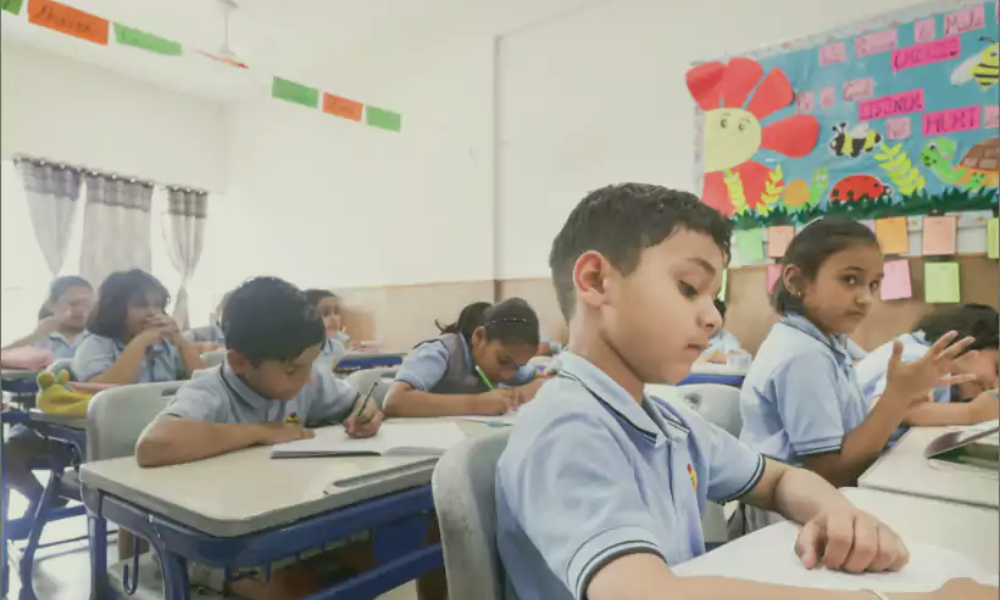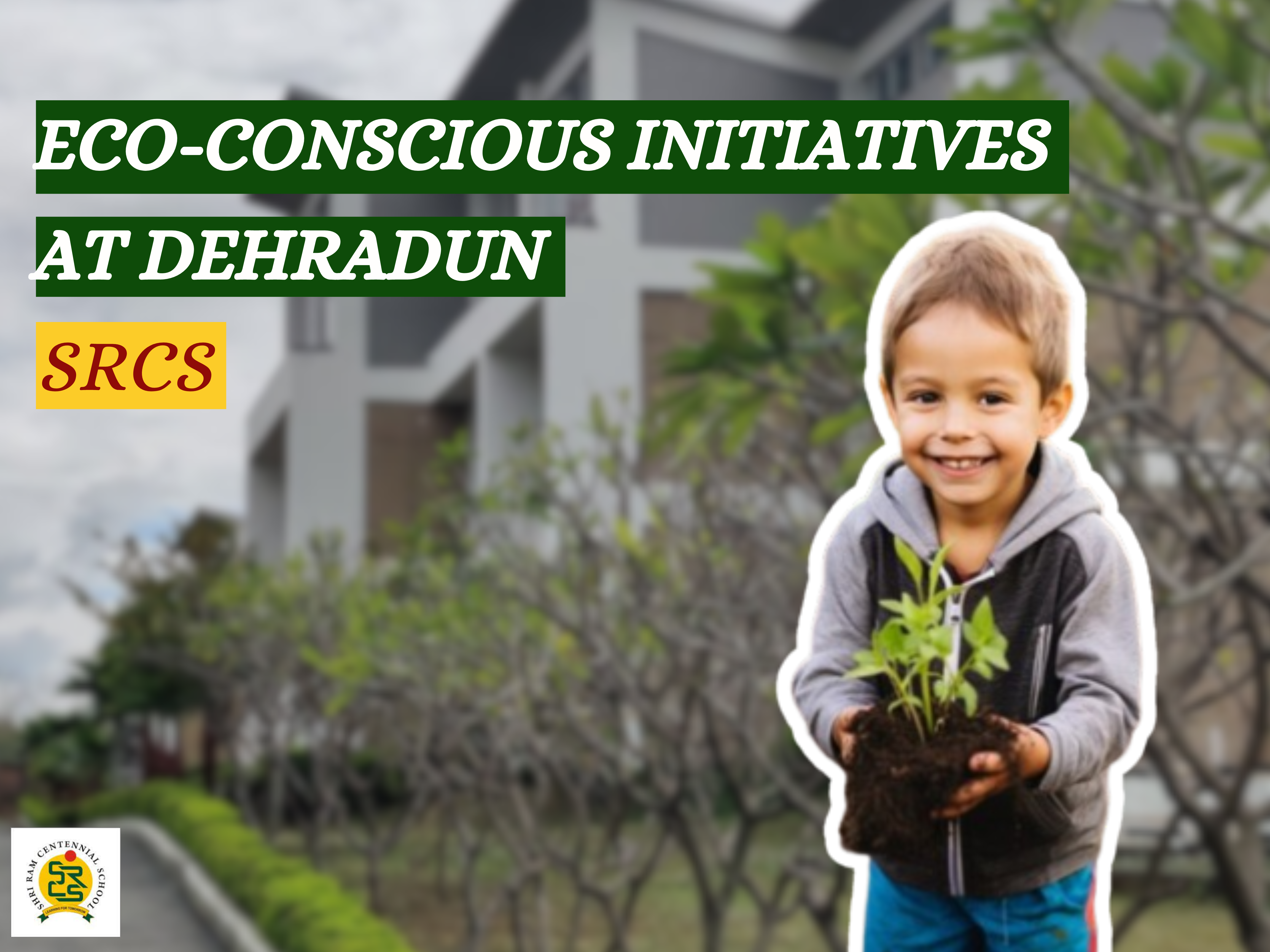In the tranquil environs of Dehradun, nestled amidst the foothills of the Himalayas, a unique educational ecosystem thrives, marked by its embrace of eco-conscious initiatives.
Boarding schools in Dehradun here not only provide academic excellence but also foster holistic development, with a growing emphasis on sustainability.
Among these institutions, SRC School stands out for its pioneering initiatives in integrating eco-conscious initiatives into every facet of its curriculum and operations.
The Educational Landscape of Dehradun:

Dehradun has earned the moniker “School Capital of India” for its plethora of educational institutions, drawing students from across the country and beyond.
The salubrious climate, lush greenery, and serene surroundings offer an ideal setting for holistic learning experiences.
Boarding schools in Dehradun, steeped in tradition yet embracing modernity, provide a nurturing environment where students not only excel academically but also develop essential life skills, character, and values.
SRC School: Eco-Conscious Initiatives

At the heart of Dehradun’s educational tapestry lies SRC School, an institution committed to nurturing responsible global citizens.
Sustainability is not merely a buzzword at SRC School; it’s a way of life. From infrastructure to curriculum, every aspect of the school embodies eco-conscious initiatives.
Here are some of the key initiatives that set SRC School apart:
Renewable Energy Integration:
Solar panels adorn the rooftops of SRC School, harnessing the region’s abundant sunlight to power classrooms, dormitories, and administrative buildings.
The school’s commitment to renewable energy extends beyond mere installation; students actively engage in monitoring energy usage, analyzing data, and proposing innovative solutions to optimize efficiency.
Water Conservation Practices:
In a region prone to water scarcity, SRC School implements rigorous water conservation measures.
Rainwater harvesting systems capture precious rainwater, which is then utilized for irrigation, sanitation, and replenishing groundwater resources.
Students are sensitized to the importance of water conservation through interactive workshops, awareness campaigns, and hands-on participation in water-saving initiatives.
Waste Management Strategies:
Addressing the pressing issue of waste management, SRC School adopts a comprehensive approach to waste reduction, reuse, and recycling.
Segregation bins strategically placed across the campus facilitate the sorting of biodegradable, recyclable, and non-recyclable waste.
Composting pits transform organic waste into nutrient-rich compost, which is utilized in the school garden, promoting a circular economy model.
Biodiversity Conservation Efforts:
The sprawling campus of SRC School serves as a haven for biodiversity, with lush greenery, native flora, and diverse fauna thriving in harmony.
Conservation efforts go beyond mere preservation; students actively participate in tree plantation drives, habitat restoration projects, and wildlife conservation initiatives.
Through experiential learning opportunities, such as nature walks and birdwatching expeditions, students develop a deep appreciation for the interconnectedness of all living beings.
Integration of Sustainability into Curriculum:
Sustainability is not relegated to a peripheral subject at SRC School; it’s seamlessly woven into the fabric of the curriculum.
Interdisciplinary modules explore topics such as climate change, biodiversity loss, renewable energy, and sustainable development from a holistic perspective.
Project-based learning encourages students to propose innovative solutions to real-world sustainability challenges, fostering critical thinking, creativity, and problem-solving skills.
Extracurricular Activities with a Sustainable Focus:
Beyond the confines of the classroom, SRC School offers a plethora of extracurricular activities that champion sustainability.
Gardening clubs cultivate organic vegetables, herbs, and fruits, promoting sustainable agriculture practices and healthy eating habits.
Adventure clubs organize eco-friendly trekking expeditions, camping trips, and outdoor workshops, immersing students in the beauty of nature while instilling values of environmental stewardship and responsible tourism.
The Role of Coeducational Boarding Schools in Fostering Sustainability:

Coeducational boarding schools serve as microcosms of society, where students from diverse backgrounds come together to learn, grow, and thrive.
The residential nature of boarding schools fosters a sense of community, camaraderie, and shared responsibility, laying the groundwork for collaborative efforts towards sustainability.
Here’s how coeducational boarding schools contribute to the cultivation of eco-conscious initiatives:
Community Engagement and Collaboration:
Boarding schools in Dehradun provide a platform for students to actively engage with the local community and stakeholders in sustainability initiatives. Collaborative projects with neighboring villages, environmental organizations, and government agencies empower students to effect positive change at the grassroots level, fostering a sense of civic responsibility and social impact.
Cross-Cultural Exchange and Environmental Awareness:
The diverse student body of coeducational boarding schools fosters cross-cultural exchange, dialogue, and understanding, transcending geographical, linguistic, and socio-economic barriers.
Through interactions with peers from different backgrounds, students gain a global perspective on environmental issues and solutions, enriching their environmental awareness and empathy towards diverse ecosystems and communities.
Leadership Development and Empowerment:
Boarding schools provide a conducive environment for nurturing leadership qualities, resilience, and initiative among students.
Leadership training programs, student councils, and extracurricular activities empower students to take ownership of sustainability initiatives, leading by example and inspiring their peers to embrace eco-conscious initiatives behaviors and attitudes.
Conclusion:
In the pursuit of sustainability in education, coeducational boarding schools in Dehradun, epitomized by SRC School, have emerged as trailblazers, demonstrating that education and environmental stewardship are intrinsically linked.
By integrating sustainability into every facet of school life, from infrastructure to curriculum to extracurricular activities, these institutions are shaping the minds and values of future generations, equipping them with the knowledge, skills, and values to navigate the complex challenges of the 21st century.
As we stand at the precipice of unprecedented environmental crises, the role of education in fostering sustainability has never been more critical.
Through collaboration, innovation, and a deep reverence for the natural world, coeducational boarding schools are paving the way toward a brighter, more sustainable future for all.










